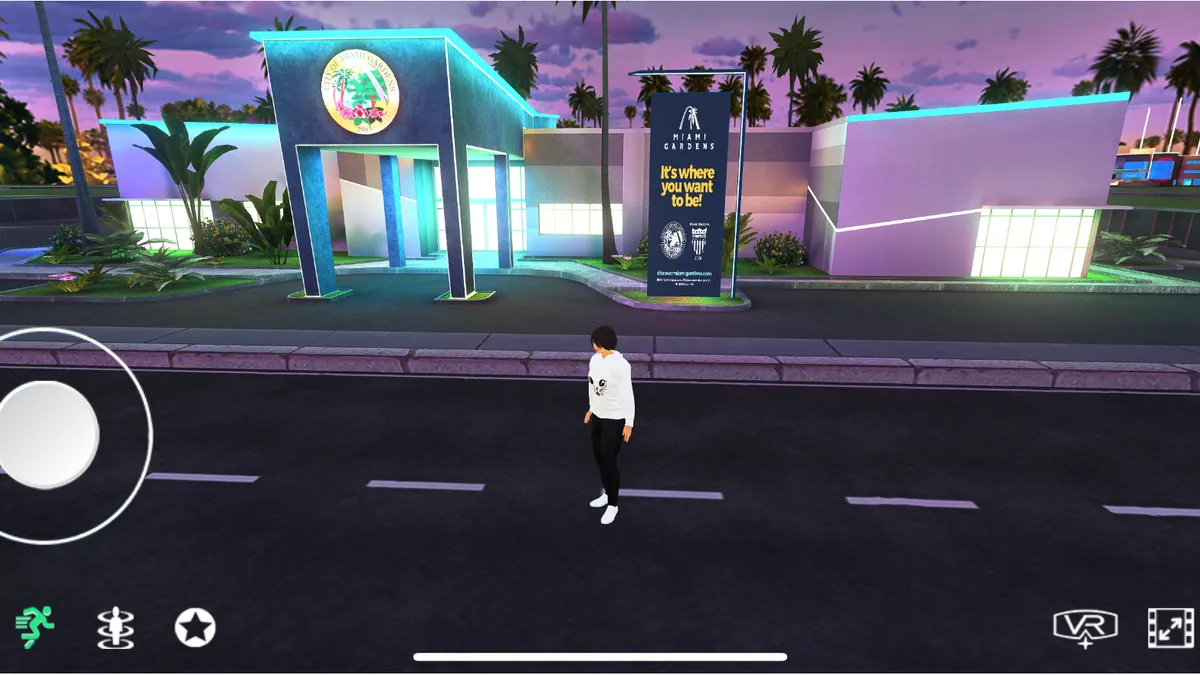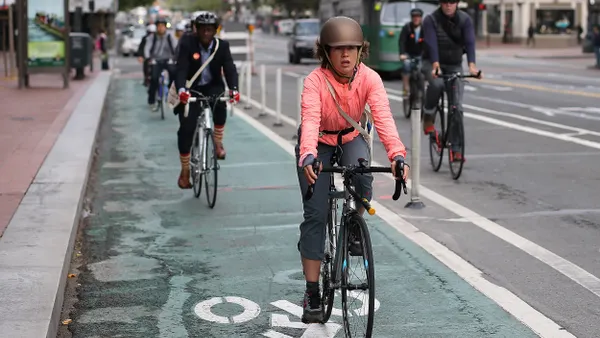As cities around the world embrace the metaverse, Miami Gardens, Florida, has partnered with CEEK VR, a virtual reality platform, to create its own metaverse project — an immersive virtual-reality world for providing information about and interaction with the city.
“The metaverse is a great way for residents and would-be visitors to experience the best [Miami Gardens] has to offer … well beyond just having a website with videos,” CEEK VR CEO Mary Spio said, adding that the technology makes the experience “as immersive as possible.”
The Miami Gardens metaverse includes reconstructions of landmarks like Hard Rock Stadium and amenities such as parks and senior centers that people can explore using a digital avatar. The intention is for residents to view and experience the metaverse through virtual reality headsets — a technology currently used mainly for video gaming — or CEEK VR’s smartphone and tablet apps.
But the metaverse is more than a video game — it aims to merge the physical and the digital worlds. Many people have described it as “the next evolution” of the internet. It’s difficult to pin down an exact definition of the metaverse, given that it encompasses several technological advances that can be used in different ways. For instance, the Los Angeles Bureau of Engineering did not use the term “metaverse” when it unveiled its virtual tour of the Sixth Street Viaduct, even though the technology the virtual tour uses is a building block for the metaverse.
Spio said several residents have discovered city amenities, such as public pools and recreation fields, by wandering through the Miami Gardens metaverse. The project's next phase will allow people to attend events virtually, which is ideal for people who can’t attend in person, Spio said.
Other cities are also looking to serve their residents via the metaverse. Seoul, South Korea, has invested $3.3 million in its metaverse, anticipating that residents will be able to visit city buildings and connect with local officials virtually, allowing them to address issues more quickly and easily. Santa Monica, California, launched digital tokens in an interactive map in 2021 to gamify efforts to attract residents to downtown businesses, becoming the first U.S. city to use metaverse technology.
It remains to be seen whether the Miami Gardens project will succeed and people will engage with it. “We would love to be the pioneers to find out if this thing could actually work,” Mayor Rodney Harris told Miami’s WPLG.
Spio remains optimistic, calling the metaverse a “gateway” to the real world. “Once people are excited by the digital experience, the next thing they want to do is visit,” she said.










